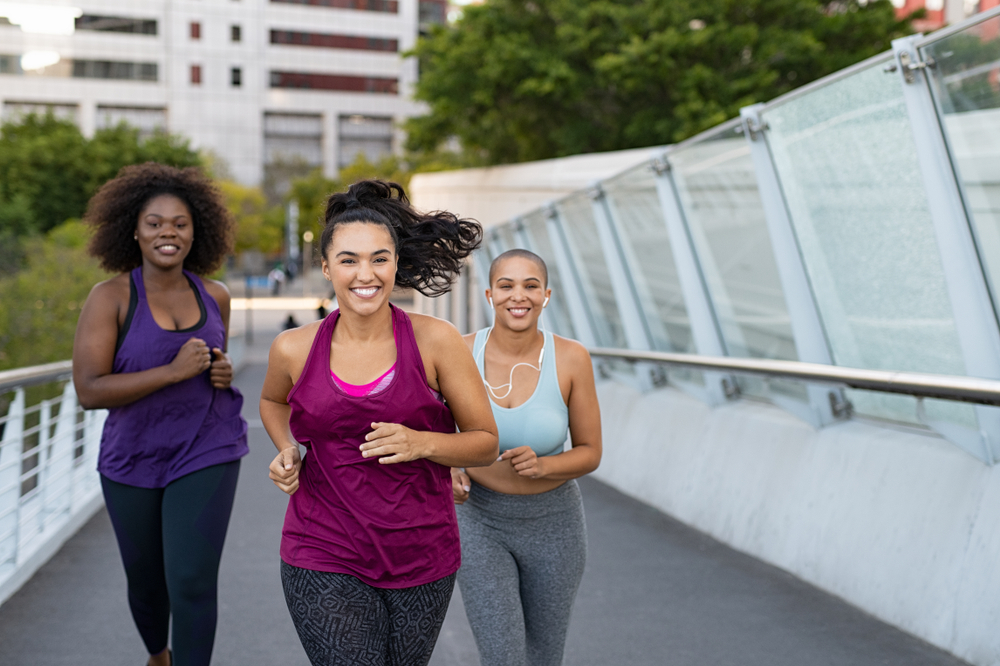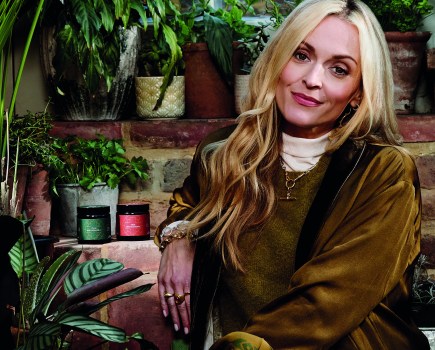The past year has been challenging – even life-changing – for many of us. Here’s how to enter the next 12 months in a way that enriches both your physical and mental health, says Claire Chamberlain.
Many people will have embarked upon 2020 with a set of health and fitness goals, as well as a sense of optimism. It was, after all, not simply a new year, but a new decade: a chance to start afresh and incorporate some positive changes into our lifestyles.
What followed served to derail many of us, as we were forced to quickly come to terms with a new way of life, navigating a pandemic, lockdown and ever-changing restrictions that look set to continue for many months to come.
So, what does this mean for 2021? How might the past 12 months have altered your outlook, goals and expectations of yourself? And how can you devise a new set of health and fitness goals that reflect all you have been through, while also helping you to move forwards with a sense of hope, joy and self-compassion?
Getting back on track
If the events of 2020 derailed your health and fitness plans somewhat, don’t worry – you certainly aren’t alone! With gyms temporarily closed and races cancelled – as well as mounting concerns including work, finances and wellness for many – it’s no wonder fitness plans have been cast aside. The key now is to treat yourself with compassion and start again from where your fitness is right now, not where you feel it ‘should’ be, or where it was back in March.
Easing back into fitness slowly is key. Just because you could run a 10K easily at the start of 2020 doesn’t mean you will be able to now. Start with realistic goals, don’t compare yourself to your old self and stay consistent.
Schedule it in
If your 2021 goals involve regaining or improving your fitness, one of the best ways you can stick to them is to schedule fitness sessions into your diary, even if you will no longer be attending actual classes or training sessions.

Finding new motivation
But what if you’re the sort of person who requires a fixed goal, such as an event in the calendar, to keep you motivated? With many races and charitable fundraisers postponed or cancelled right now, how can you best keep your eye on the fitness prize?
‘Keep working towards those goals!’ encourages personal trainer Aimee Victoria Long. ‘There are so many amazing virtual events happening instead, including virtual triathlons, marathon and cycling events. Technology has really helped us stay connected and you can even race against others in online events. It might not be the same, but brands such as Watt bike, Peloton and Zwift are truly changing the way we train for challenges, so if you can’t get outside to train, you can bring everything indoors – even the event itself!’
Think outside the box
Many of us have had to rethink our fitness options over the past few months and, even though some gym spaces have reopened, many people have been reluctant to return. But instead of feeling dismayed, turn this on its head and embrace the possibility of new challenges and exercise options, especially as we move into a new year.
Trail running, power walking, wild swimming and outdoor cycling are great options if you love a sense of adventure and being outdoors. Plus the connection you will start to build with the natural world around you is a wonderful tonic for frayed nerves and an anxious, racing mind.
Or if you love a class atmosphere and the encouragement of a PT or instructor, there are loads of online options available.
Look after your mental wellbeing
Of course, your health is not just about your physical fitness, and 2020 has certainly served up a heap of anxiety for many people. If you’ve been feeling low, anxious, stressed or depressed, know that you’re not the only one.
‘What we’re starting to see now is the longer-term impact of the last six months on mental health and wellbeing,’ says Dr Zoe Williams, wellness ambassador for Garmin. ‘Many of us are still recovering from what has been a challenging period at work and at home. It’s for this reason that it would be a good idea to set more holistic lifestyle goals that avoid putting us under any more pressure than is necessary.’
The following acts of self-care make perfect holistic goals as we move into a new year…
Listen to your body
Doing what our bodies like doing, rather than throwing them into a new routine that’s hard to keep up with, is one of the best ways to restore the body and mind,’ says Dr Williams. ‘It helps keep us motivated to continue pushing ourselves forwards without pulling the rug from underneath our feet.’
Set small, achievable goals
‘Coming up with a few small achievable goals to work towards, such as a 2K run or 10 minutes of mindfulness a day, are perfect for when things don’t feel very stable,’ says Dr Williams. ‘When times are difficult, goals should be easily achievable, so you don’t put more stress on yourself and you have something to celebrate each day.’

Keep going with established healthy habits
‘Many of us have established new, healthy habits without even realising it during this time,’ reveals Dr Williams, ‘and now the worthwhile challenge is ensuring we keep hold of these habits. For example, a study recently commissioned by Garmin showed that one in five of us are actually getting a better night’s sleep than we were last year. Often overlooked, the value of good sleep is so important for our wellbeing, not only allowing us the rest we need to remain healthy but to help us maintain and grow our physical and mental health. Finding ways to cement these habits means we’ll find them easier to take forward when things begin to return to normal.’
Practice mindfulness
‘Mindfulness means something different for each person, and whether it’s a session of meditation or some deep breathing, these moments for yourself are so important for your wellbeing,’ reminds Dr Williams. ‘The good news is, mindfulness can be slipped into moments in the day without having to commit to lengthy dedicated sessions. When you’re boiling the kettle, on public transport or even walking, you can take moments to clear your mind and be present by focusing on your senses. Think about what you can see, hear, feel, smell and taste for a few minutes – you’ll be surprised how much better these short, mindful moments can make you feel.’







